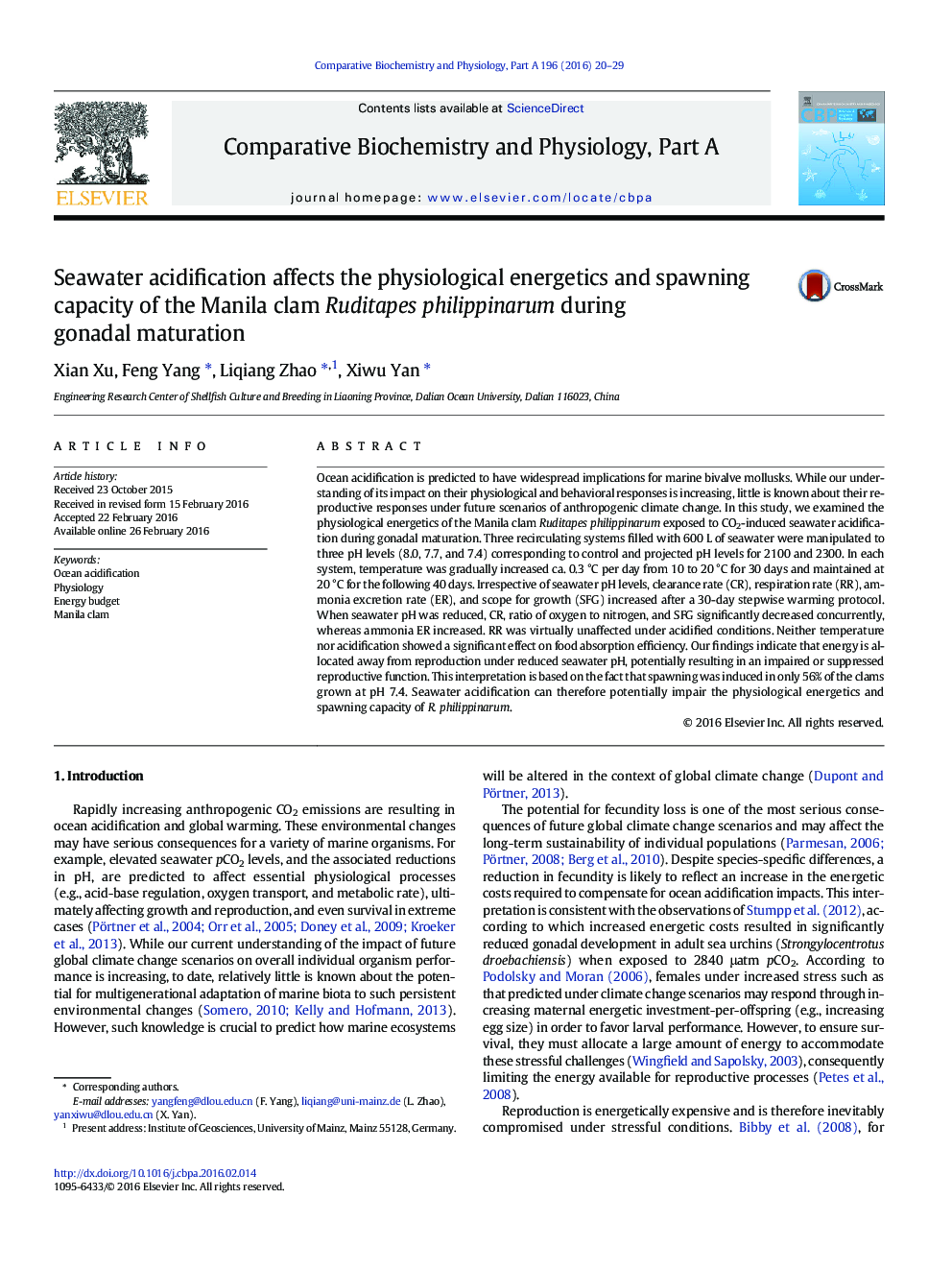| کد مقاله | کد نشریه | سال انتشار | مقاله انگلیسی | نسخه تمام متن |
|---|---|---|---|---|
| 1971854 | 1538991 | 2016 | 10 صفحه PDF | دانلود رایگان |

• Effects of pH on molluscan physiology during gonadal maturation were investigated.
• Feeding physiology is sensitive to seawater acidification.
• Reduced seawater pH compromises the energy budget of clams.
• Seawater acidification potentially impairs molluscan spawning capacity.
Ocean acidification is predicted to have widespread implications for marine bivalve mollusks. While our understanding of its impact on their physiological and behavioral responses is increasing, little is known about their reproductive responses under future scenarios of anthropogenic climate change. In this study, we examined the physiological energetics of the Manila clam Ruditapes philippinarum exposed to CO2-induced seawater acidification during gonadal maturation. Three recirculating systems filled with 600 L of seawater were manipulated to three pH levels (8.0, 7.7, and 7.4) corresponding to control and projected pH levels for 2100 and 2300. In each system, temperature was gradually increased ca. 0.3 °C per day from 10 to 20 °C for 30 days and maintained at 20 °C for the following 40 days. Irrespective of seawater pH levels, clearance rate (CR), respiration rate (RR), ammonia excretion rate (ER), and scope for growth (SFG) increased after a 30-day stepwise warming protocol. When seawater pH was reduced, CR, ratio of oxygen to nitrogen, and SFG significantly decreased concurrently, whereas ammonia ER increased. RR was virtually unaffected under acidified conditions. Neither temperature nor acidification showed a significant effect on food absorption efficiency. Our findings indicate that energy is allocated away from reproduction under reduced seawater pH, potentially resulting in an impaired or suppressed reproductive function. This interpretation is based on the fact that spawning was induced in only 56% of the clams grown at pH 7.4. Seawater acidification can therefore potentially impair the physiological energetics and spawning capacity of R. philippinarum.
Journal: Comparative Biochemistry and Physiology Part A: Molecular & Integrative Physiology - Volume 196, June 2016, Pages 20–29